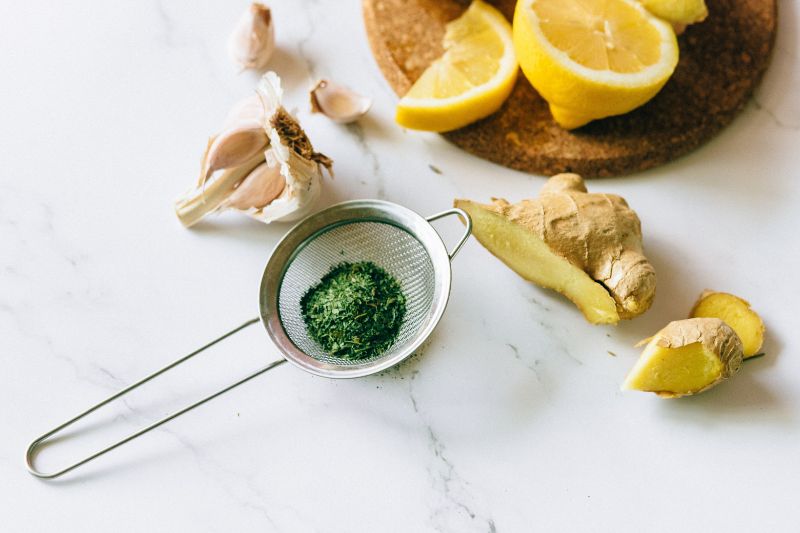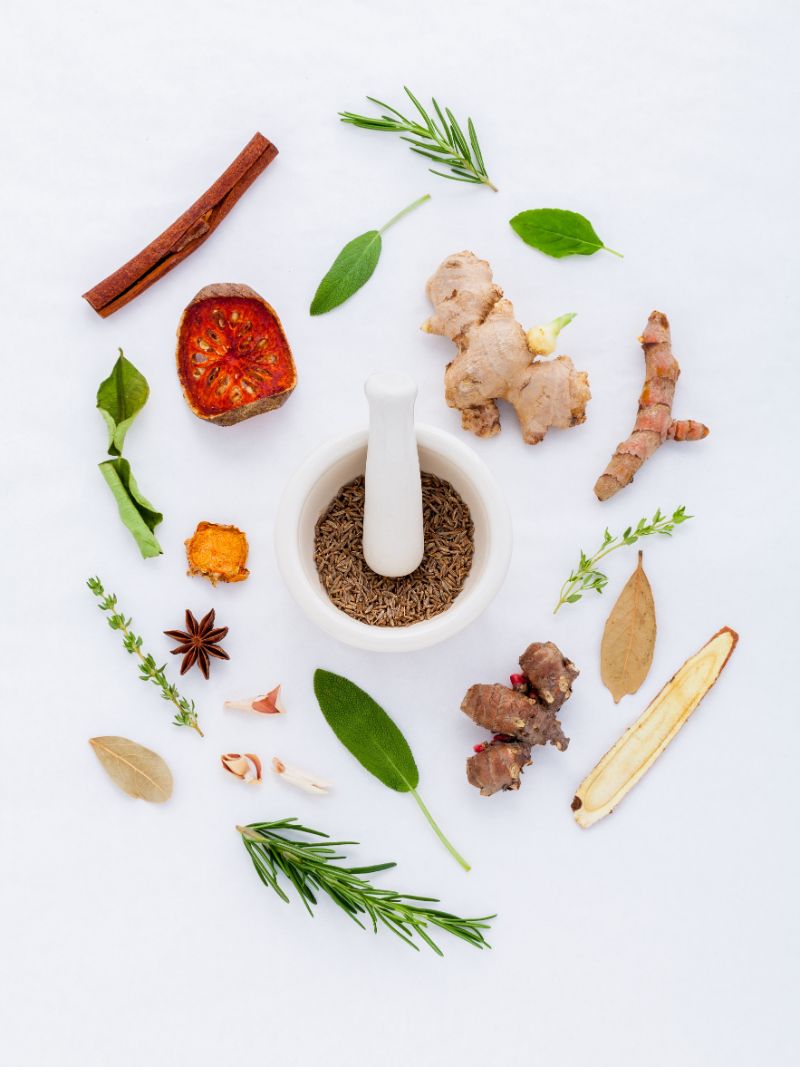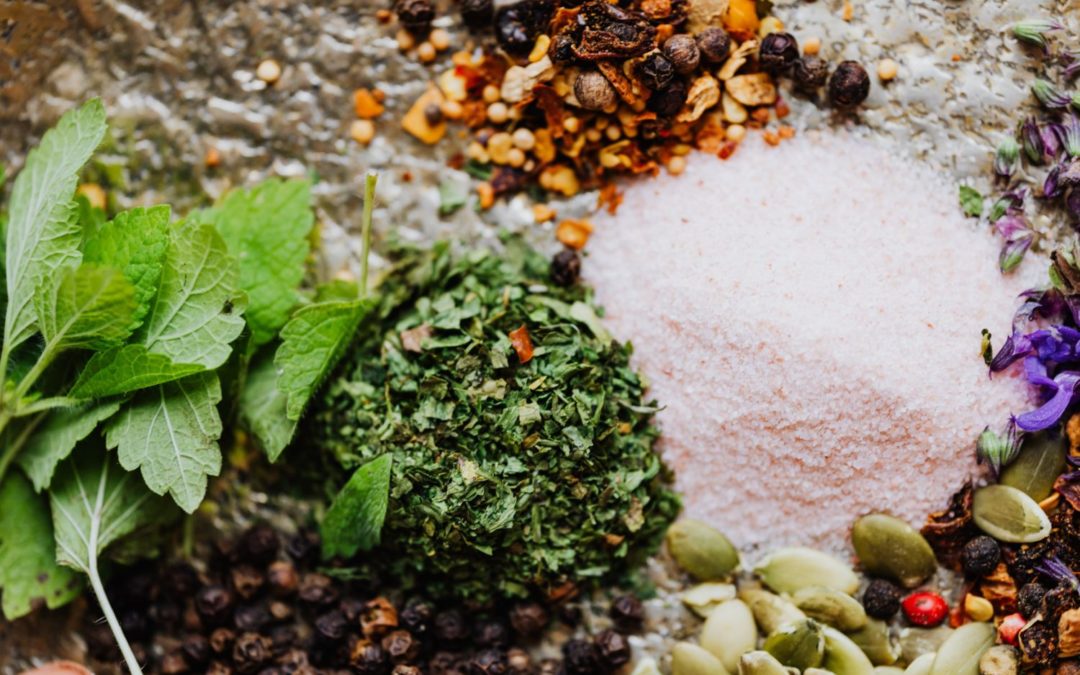
For centuries, people use herbs and spices for tinctures and salves to treat diseases. Even after introducing modern medicine, many still use these herbs for treatments. But these herbs and spices aren’t only for medicinal use.
Changing weather, aging, and cold season (literally and figuratively) can weaken our immune system. And let’s not forget that we’re still dealing with the COVID-19 threat. Good thing that these herbs and spices can help boost the immune system.
We can use them for tonic or tea. You can add them to your salads, stews, and other dishes. In this article, we’ll share some herbs and spices that can boost your immunity in a flavorful way.
Garlic
This pungent member of the onion family is a staple for most kitchens. Used as a spice, it improves flavor and helps with indigestion. You can roast, saute, or fry these bulbs to add to your recipes.
But did you know that it’s best eaten raw for highest medicinal effectivity? When cut or crushed, Allicin, a compound with potent anti-fungal or anti-bacterial properties, is released. This potency diminishes once we expose the garlic to high heat.
The benefits of eating garlic include reducing blood pressure, improving cholesterol level, and helping in detoxifying heavy metals in the body, preventing cough and colds.
Many recipes include garlic, so it’s easy to have a serving of it every day. You can also add raw garlic puree to your mayo dip or ranch dressing. Like roasts? Add roasted garlic to your salad, or roast it with your asparagus or beans.

Ginger
Ginger is another staple, especially in Asian kitchens. Filipino dishes like paksiw, tinola, and arroz caldo wouldn’t be the same without ginger. It matches well with seafood, soups, and marinades. It can be used fresh, dried, powdered, or even turned into oil or juice.
Aside from being a major player in recipes, ginger has a long-standing role as an herbal supplement. It eases nausea due to morning sickness or medical treatments. It helps with the swelling because of arthritis or joint problems. Ginger tea can help with indigestion if taken after a meal.

Turmeric
Turmeric gained popularity in recent years as one of the superfoods, and have been prescribed to consume for healthy living. But even before that, it’s already a staple in most Asian homes. Turmeric lends its savory taste and strong aroma to curry, while giving it its signature yellow color.
Like its cousin, ginger, turmeric is also good for colds, cough, and chest congestion. Other benefits of turmeric include controlling your blood sugar level, removing toxins from your blood, and helping your digestive system.
As a drink, you can make tea from slices boiled in water. You can also add a teaspoon to your coffee, latte, or milk. For dishes, there are other recipes that call for turmeric aside from curry.
Next time, try marinating your chicken with buttermilk, turmeric, paprika, black pepper, and oregano for a more flavorful taste.
Black Pepper

Black pepper is one of the most commonly used spice worldwide. It comes in various forms such as powdered, crushed, or whole peppercorns. Its sharp and mildly spicy flavor gives many dishes just enough kick and tang.
But the king of spices is more than just a kitchen staple. It has high antioxidant content which removes free radicals from your body. It may lower cholesterol levels and improve blood sugar levels.
Carotenoids
You can add it to dishes from sweet to savory, to enjoy its spicy and warm aroma. Because of its versatility, you can find many ways to use this spice in your daily meal. You can add a teaspoon to your oatmeal or swirl the spice with your yogurt or latte. You can even add a dash of it to your chicken soup when you’re feeling under the weather.

Thyme
Thyme is an herb with dietary, medicinal, and ornamental uses. It can be used fresh, dried or as an essential oil. It was used to treat diarrhea, arthritis, stomachache, and sore throat.
From the same family as the oregano, some studies suggest thyme’s effectivity in the treatment of acute bronchitis and other viral respiratory infections. It is also said to have anti-inflammatory properties, and can help in boosting your immune system.
You can add thyme to your roasted vegetables or give your soups a citrusy flavor.
Sage
If the black pepper is the king of spice, sage could be the queen of herbs. Its leaves may look soft and fuzzy, but it packs a lot of flavor and medicinal properties.
When you’re fighting off unwanted bacteria, sage’s natural anti bacterial properties are your best allies. It packs a lot of nutrients and loaded with antioxidants. It’s also known for its memory-enhancing and mood-boosting properties.
Although recommended to be used in small amounts, you can add sage to your diet as a garnish on soups or rub for meats. You can also add it as a seasoning for your stews and vegetable roasts. If you’re a fan of its strong aroma, mix it with butter or serve it with your omelet.
Conclusion
Tags



0 Comments